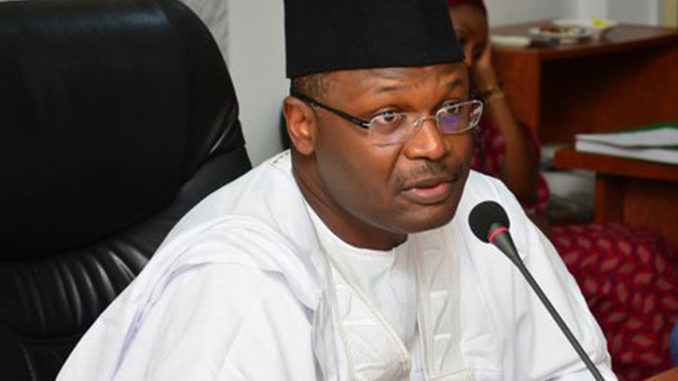
One of the many unsavoury conclusions from the last general elections describes how little is the progress we have made since our last collective visit to the polls. In 2015, card readers were simultaneously the “killer application”, designed to take our democracy to the next level and the bête noire of that year’s general elections, speaking to severe weaknesses in our processes. In a few highly publicised instances, these devices didn’t work as they were advertised to. But when, finally, they worked, the process left no doubt that an effective system of authentication of each voter is a non-negotiable requirement of our transition to a proper democracy. It matters, therefore, that across the economy, authentication processes are in place and functioning well in diverse spheres of our lives, which make the technology on which our card readers are currently based look decidedly antediluvian.
Last year alone, just one example, this, bank customers carried out ₦138.67 trillion worth of their businesses on the different electronic payments platform offered by the industry. This was 32.5% more than the ₦104.67 trillion transactions they carried out on the same platforms in 2017. Of course, it is hard to put a price to any process that strengthens our democracy. The gains from being able to properly choose our leaders and being able to hold them accountable once in office will be felt across the economy. It is equally well-nigh impossible to properly cost the damage to the economy from arbitrary and unaccountable leaderships across the three tiers of government. Still the numbers out of the banks mean that we have the infrastructure to move our voting procedures on to more efficient platforms. Underpinning all these numbers are banks’ use of unique customer data on which the authentication platforms which support these transactions run. It is worth pointing out that the biometric part of banks’ customer data is a latter-day addition from the central bank’s requirement of a bank verification number.
In other words, the Independent National Electoral Commission (INEC) has in its system more material than the banks have needed to help their customers move trillions of naira around the economy. Why do we, then, continue to have difficulties authenticating votes? This question, invariably, leads to the excuse that we are a young democracy — and that the snafus associated with successive elections are but part of a gradually less-steep learning curve. In some telling of this excuse, our current democratic experience is estimated as barely two decades old. Serial interventions by the military appear in this narrative not only to have aborted previous such experiments. But to have deterged our collective recollections of whatever lessons we learnt from participating in those small windows.
It counts for little, on this interpretation, that the first elections in this space took place on March 29, 1920, when the electorate voted for three members of the Lagos Town Council. Somehow, it seems that we are incapable of learning much about democracy until we have had more than 200 years of unbroken experience of it. I.e. until we near where the Americans are today. Persuasive, though, this argument may seem at first blush, it ignores too many inconvenient facts. Not only does it paper over the fact that there are thriving democracies that are not as old as Nigeria is — and so the denial by adventurous military officers of longevity to our democratic experiments cannot be the all-important part of the explanations of our continued failure at this exercise that it is made out to be.
But by insisting on reinventing the wheel in terms of the length of our experience of rule by the demos, of the demos, and for the demos, the argument around our inchoate democratic ethos ignores the many examples of use by emerging and frontier economies of new technology to leapfrog institutional disadvantages. The use in east Africa of mobile phone technology to deliver financial transaction and payments solutions across economies is but one such example. In this regard, it is important that between our financial services institutions, the Federal Road Safety Commission, mobile telephony providers and INEC, we have biometric coverage of a significant number of Nigerians 18 years and older.
Reforms to our electoral process might eventually aim at making these diverse databases inter-operable. But the goal will simply be to improve the ease of access and convenience of use of our voters’ cards in a way in which the plastic cards and the ATMs have altered the face of banking in the country. Arguably, peeves around governance — especially who has access to and how these data are stored, protected, and used — will have to be addressed. But none of these vexations addresses the failure of our political class to raise questions around root-and-branch reforms to our electoral processes.
One explanation (proffered by a friend in the conversation leading up to this piece) for this latter failing is that both the incumbent party and the pretend opposition (across the many levels of government) have strong interests vested in the opacity of our current processes. In the end, it is this, more than intervention by the military — debatably but itself a symptom of a much more troubling malaise — that is the biggest hurdle in the path of our quest for democratic government.
Uddin Ifeanyi, journalist manqué and retired civil servant, can be reached @IfeanyiUddin.
END

Be the first to comment